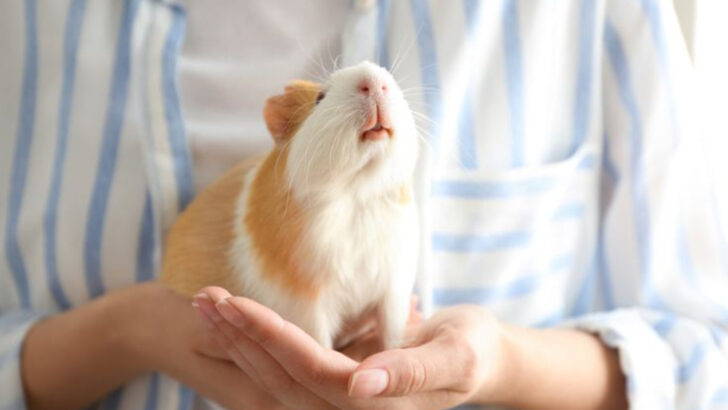Guinea pigs are not starter pets—they’re tiny, squeaky mysteries wrapped in fur. Sure, they’re adorable. They wiggle their noses, munch on lettuce like it’s gold, and make the cutest little chirps. But behind that cuteness is a surprisingly delicate animal with needs that most people never see coming. Vets see it all—the mistakes, the heartbreaks, and the happy surprises. They know which myths to ditch, which warning signs to watch for, and why that colorful cage from the pet store is a bad idea. Before you bring one home, find out what vets really wish you knew. It might just save you (and your future guinea pig) a whole lot of trouble.
Guinea Pigs Need Companionship
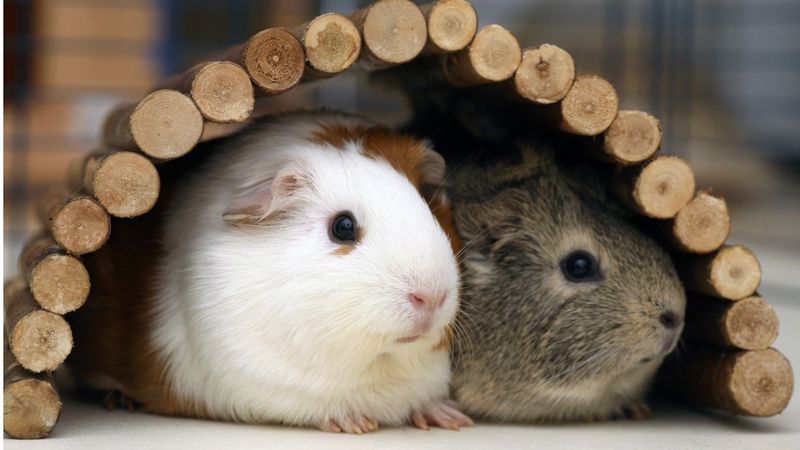
Guinea pigs, unlike some other small pets, thrive on companionship. They are social creatures that form strong bonds with their fellow guinea pigs. Without a buddy, they can become lonely and withdrawn, affecting their overall health.
It’s crucial to adopt them in pairs or ensure they have enough social interaction daily. If you’re contemplating a solo adoption, reconsider.
These charming animals will not only entertain each other but also bring joy to your household with their playful antics. Remember, a lonely guinea pig is an unhappy one.
Dietary Needs Are Specific
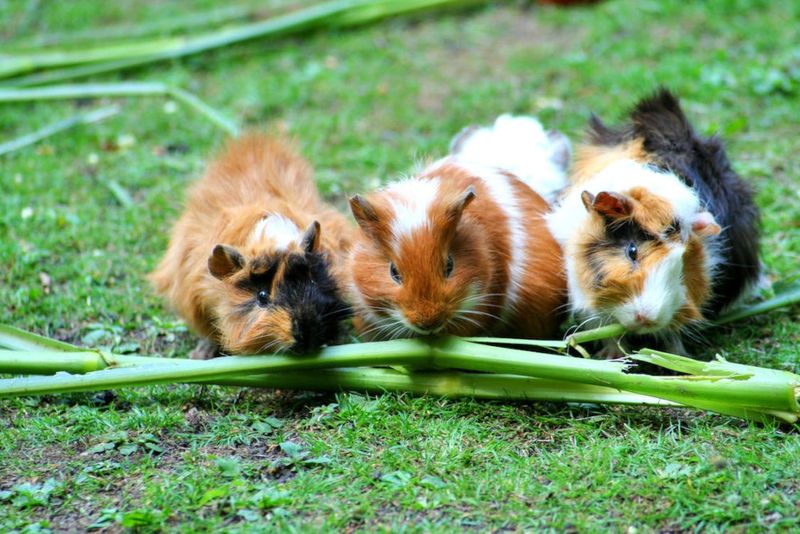
Feeding a guinea pig is not as simple as one might think. Their diet primarily consists of hay, fresh vegetables, and specially formulated pellets.
Vitamin C is crucial as guinea pigs cannot produce it on their own. Lack of this vitamin can lead to scurvy, a disease with serious health consequences.
Incorporating a variety of vegetables like bell peppers and kale helps meet their nutritional needs. Always avoid foods that are harmful, such as chocolate or onions. A well-balanced diet keeps your guinea pig healthy and content.
They Require Regular Vet Check-Ups
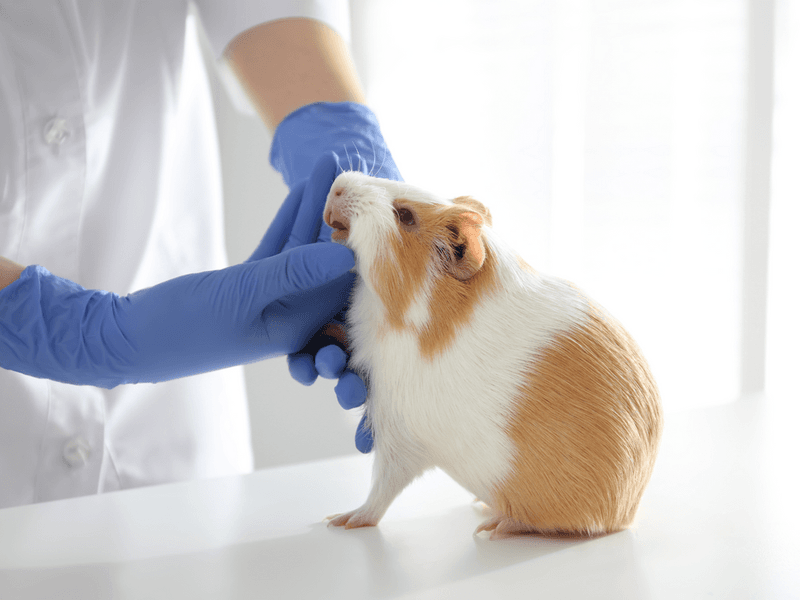
Routine veterinary care is essential for guinea pigs. These visits help in detecting early signs of illness, which might not be obvious to an untrained eye.
Common health issues include dental problems and respiratory infections. Regular check-ups ensure any such problems are caught and treated promptly.
Choosing a vet experienced with small animals is advisable. Regular health assessments contribute to a longer, healthier life for your pet.
Guinea Pigs Are Vocal Communicators
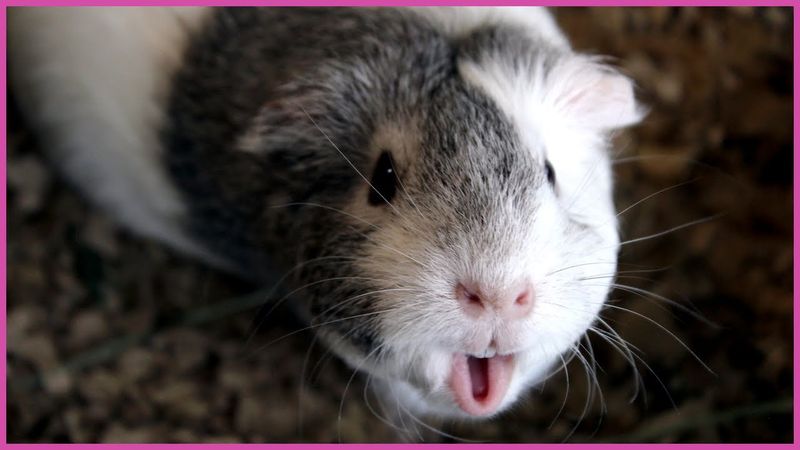
Guinea pigs have a unique way of communicating that includes a variety of sounds. From wheeking to purring, each sound conveys a different emotion or need.
Understanding these vocal cues can greatly enhance your relationship with them. For instance, a squeal might indicate excitement, while a purr could mean contentment.
Paying attention to their sounds helps in providing timely care and affection. It’s their way of saying they need attention or are simply happy.
Housing Needs to Be Spacious
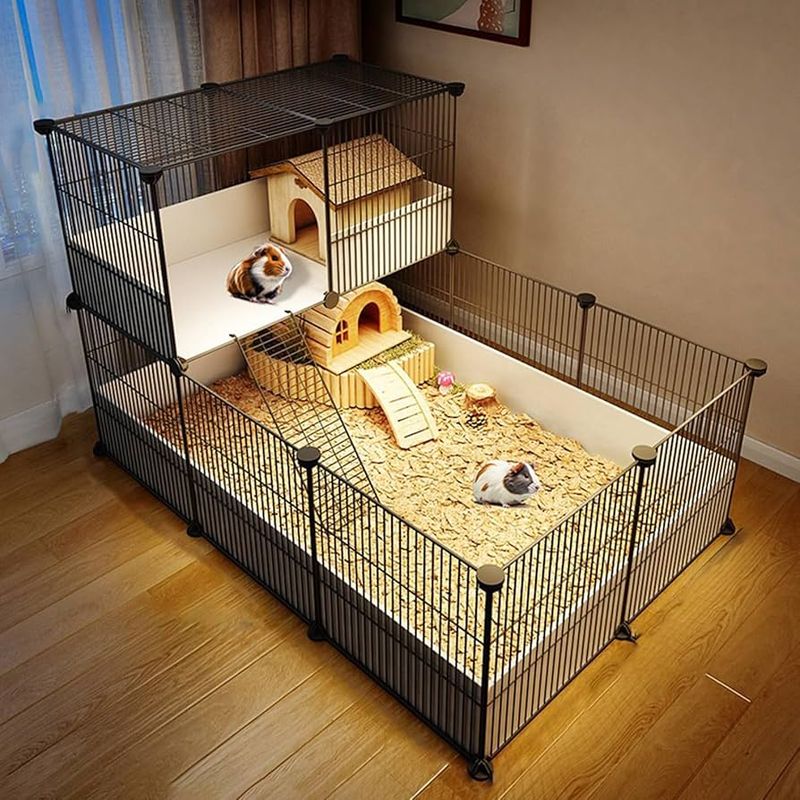
Providing adequate space for guinea pigs is vital for their well-being. These energetic animals love to roam and need plenty of room to exercise.
A cramped cage can lead to stress and health issues. Aim for a habitat that accommodates their active nature and includes hiding spots and toys.
This not only keeps them physically active but also mentally stimulated. A happy guinea pig is one that can explore and play freely.
Lifespan Is Longer Than You Might Expect
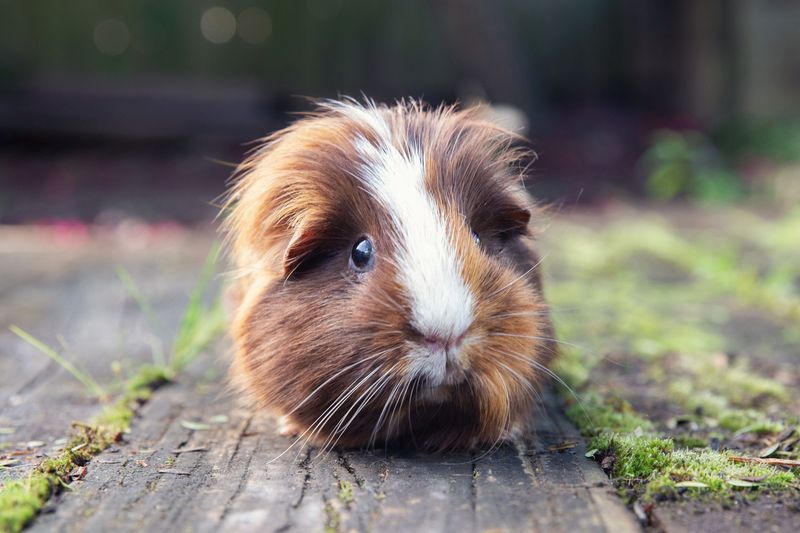
While they might seem like short-term pets, guinea pigs can live up to 7-8 years with proper care. This is a significant commitment that potential owners often overlook.
Regular health checks and a balanced diet contribute to their longevity. It’s essential to be prepared for their long-term care, both emotionally and financially.
Understanding this commitment ensures you’re ready to provide a loving home for the duration of their life.
Grooming Is Essential
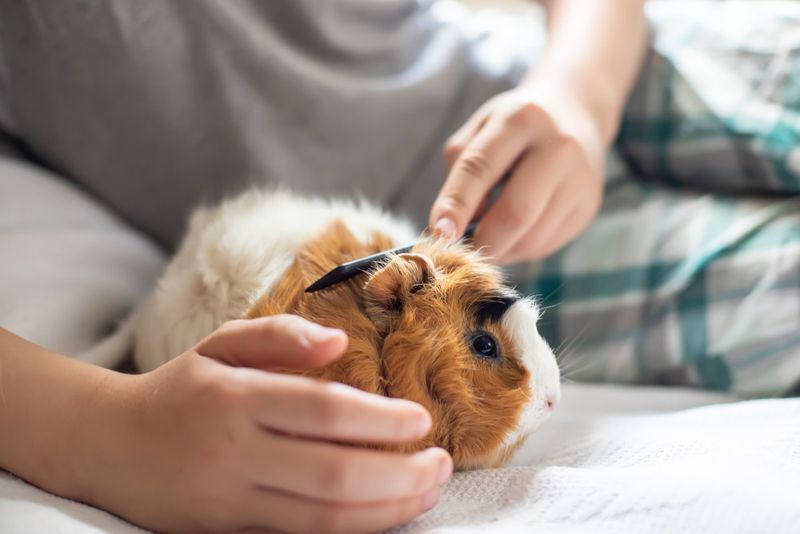
Grooming is not merely for aesthetics; it’s a crucial part of a guinea pig’s care. Long-haired breeds, in particular, need regular brushing to prevent matting and tangles.
Additionally, keeping their nails trimmed is important to avoid discomfort or injury. Regular grooming helps in bonding and spotting potential health issues.
It’s an opportunity to check for parasites or skin conditions. A well-groomed guinea pig is a healthy and happy one.
Guinea Pigs Are Crepuscular
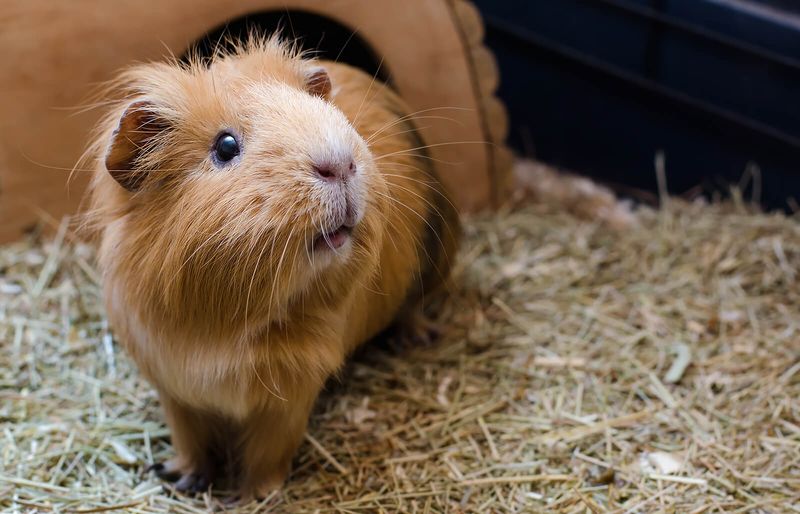
Unlike some pets, guinea pigs are crepuscular, meaning they are most active during dawn and dusk. This is when you’ll see them at their most energetic.
Knowing their active times helps in planning interaction and play sessions. It’s also useful for feeding schedules to align with their natural rhythms.
Understanding their activity pattern can enrich your time together, ensuring you’re present when they’re most lively.
They Have Sensitive Digestive Systems

Guinea pigs have incredibly sensitive digestive systems, which require careful dietary management. Overfeeding or introducing new foods too quickly can lead to serious health issues.
It’s important to monitor their food intake and ensure they have constant access to fresh hay and water. Changes in diet should be gradual to prevent stomach upsets.
Their digestive health is crucial for overall well-being, so understanding and respecting their dietary needs is key to their care.
Guinea Pigs Are Not Low-Maintenance
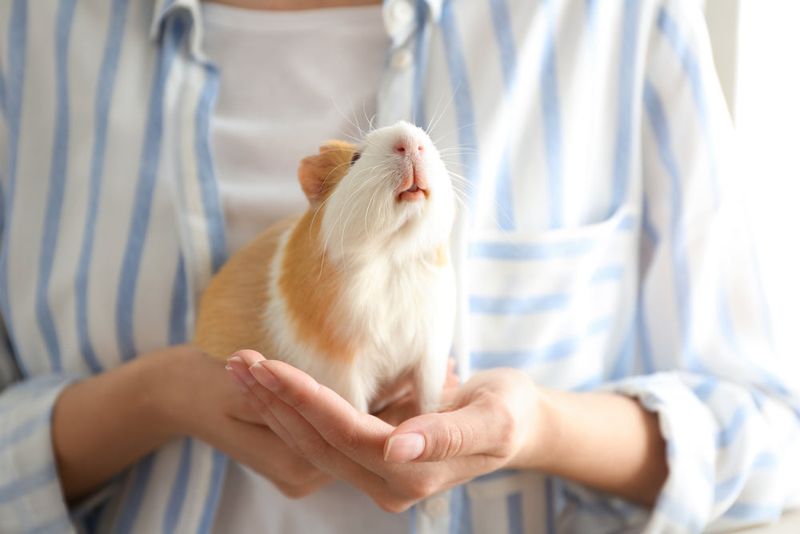
Adopting a guinea pig is a commitment to daily care and attention. They require more maintenance than what meets the eye.
From feeding and grooming to cleaning their habitat, it’s a routine that demands time and effort. Engaging them with toys and playtime is equally vital.
Owning a guinea pig means being prepared for an active role in their life. They rely on you for their happiness and health.
Environmental Enrichment Is Crucial
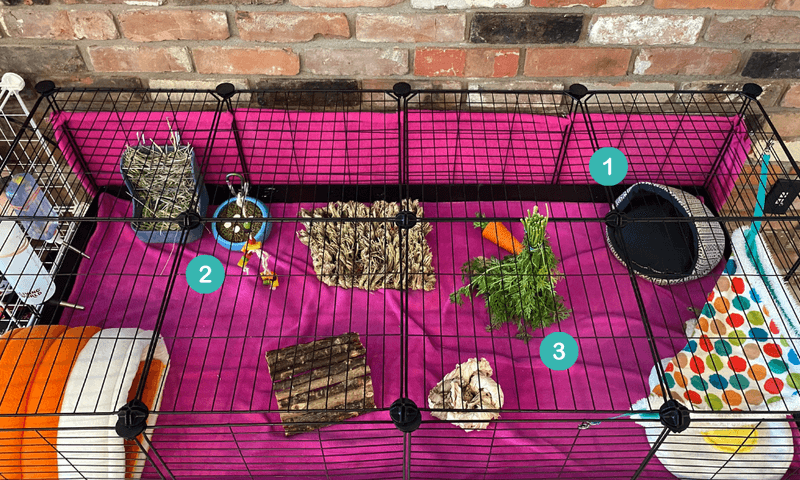
Guinea pigs thrive in environments that stimulate their natural instincts. Providing them with a range of toys and activities prevents boredom.
Tunnels, chew toys, and varied textures keep them engaged. Enrichment is not just about entertainment; it’s essential for mental health.
Creating a stimulating habitat promotes physical activity and curbs undesirable behaviors. A well-enriched environment leads to a content and active guinea pig.
Allergies to Guinea Pigs Are Possible

Before adopting, consider potential allergies. Guinea pigs, like other pets, can trigger allergic reactions in some people.
It’s wise to spend time with them beforehand to see if any symptoms arise. Allergy tests can also be helpful.
Being aware of this possibility ensures a harmonious living situation for both you and the pet. Taking precautions can prevent future heartache.
Guinea Pigs Have Unique Personalities
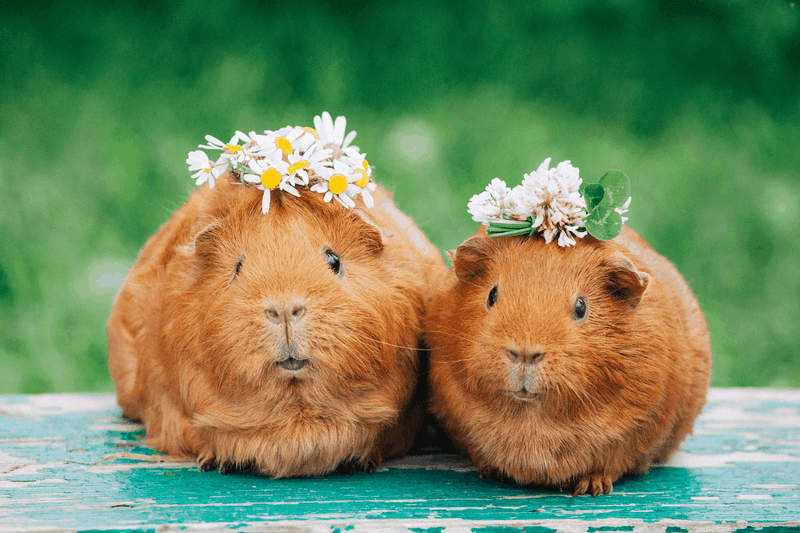
Each guinea pig boasts a distinct personality, making them delightful companions. Some are shy, while others are bold explorers.
Taking time to understand their traits enriches the bond you share. It’s rewarding to see them trust and interact in their environment.
This individuality is what endears them to owners, offering a unique relationship with each pet. Embracing their quirks enhances their care and your enjoyment.

